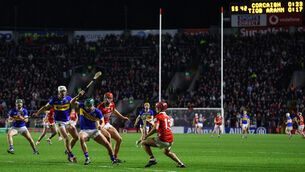Bigots keeping Thatcher’s flame alive
The Hillsborough Independent Panel's report confirmed that the fatal crush was more than just a disaster. The outline of the story becomes sharper in its historical context. In the early- to mid-1980s the Thatcher government forced through a series of brutal economic reforms that were fiercely resisted by unionised workers. In what at times amounted to a civil war, the police were the government's front-line troops. A few years later, when the police scrambled to escape the blame for the Hillsborough disaster, the government looked the other way.
In his speech to the Commons on Wednesday, David Cameron insisted the Thatcher government was not complicit in the cover-up and had wanted some leading police officers to resign. Yet even Cameron admitted they could have done more to force the police to admit the truth. The quid pro quo does not need to have been explicit for people to draw their own conclusions as to what really went down in South Yorkshire.











